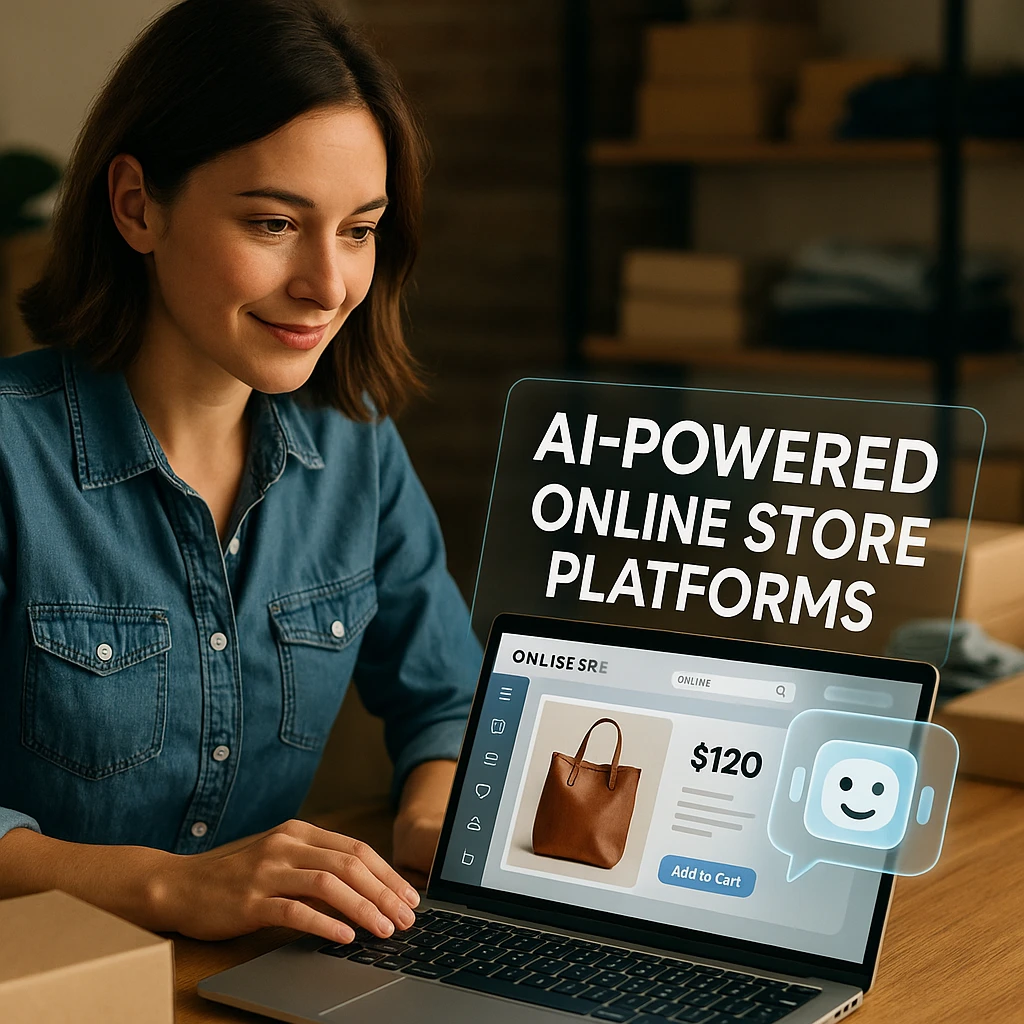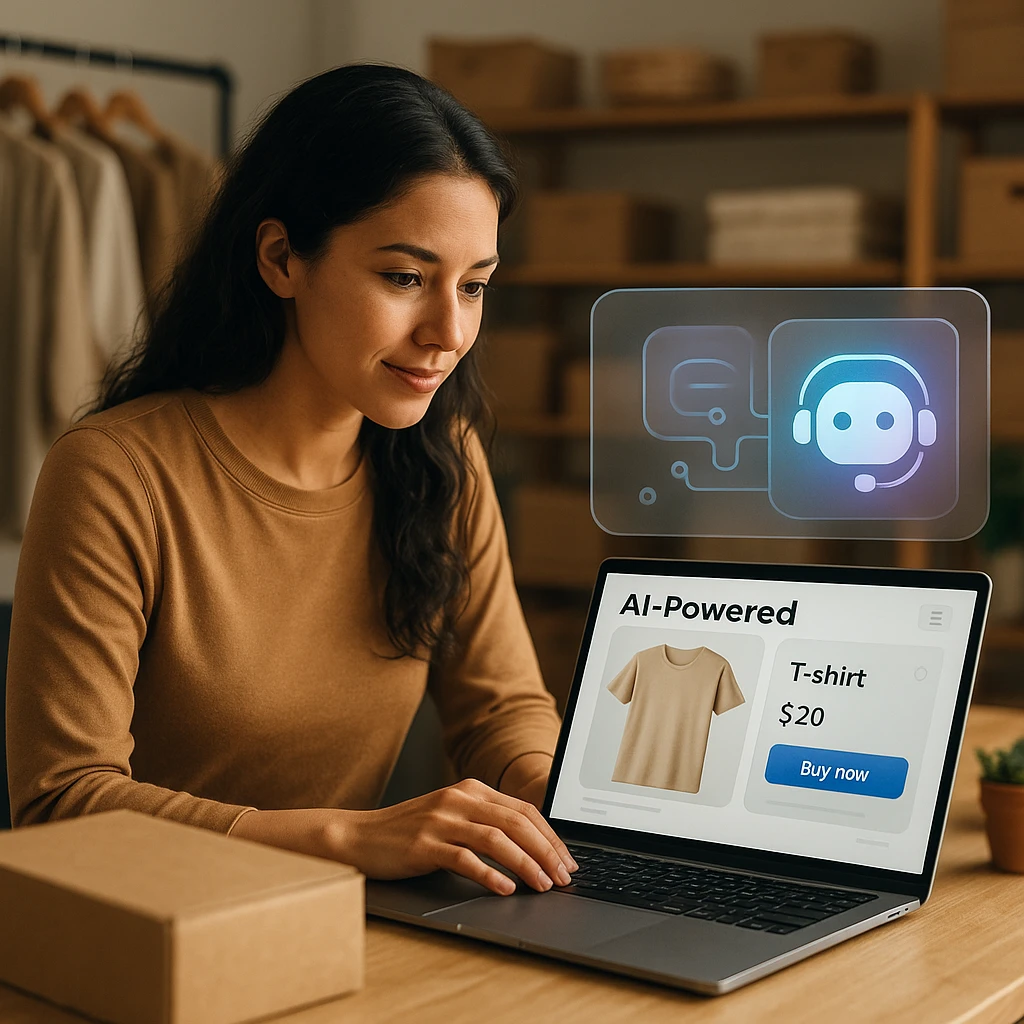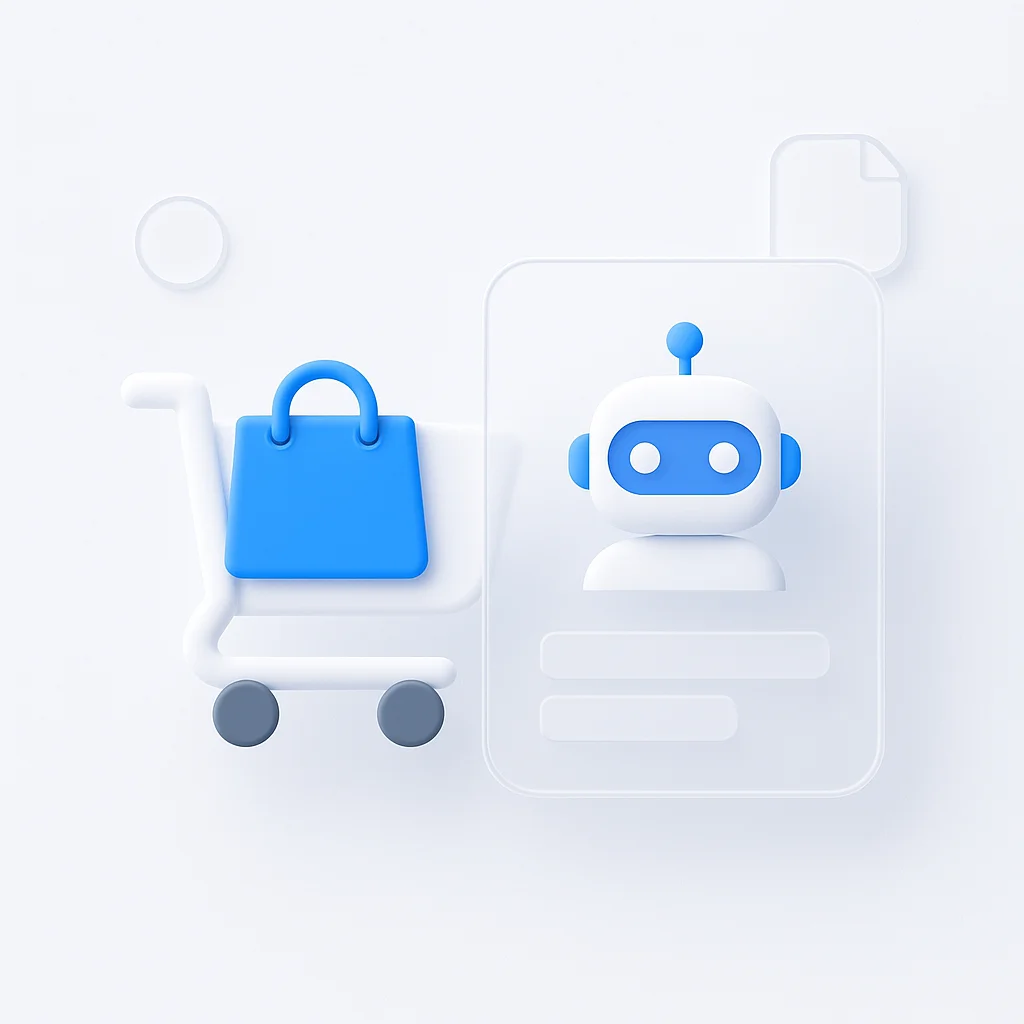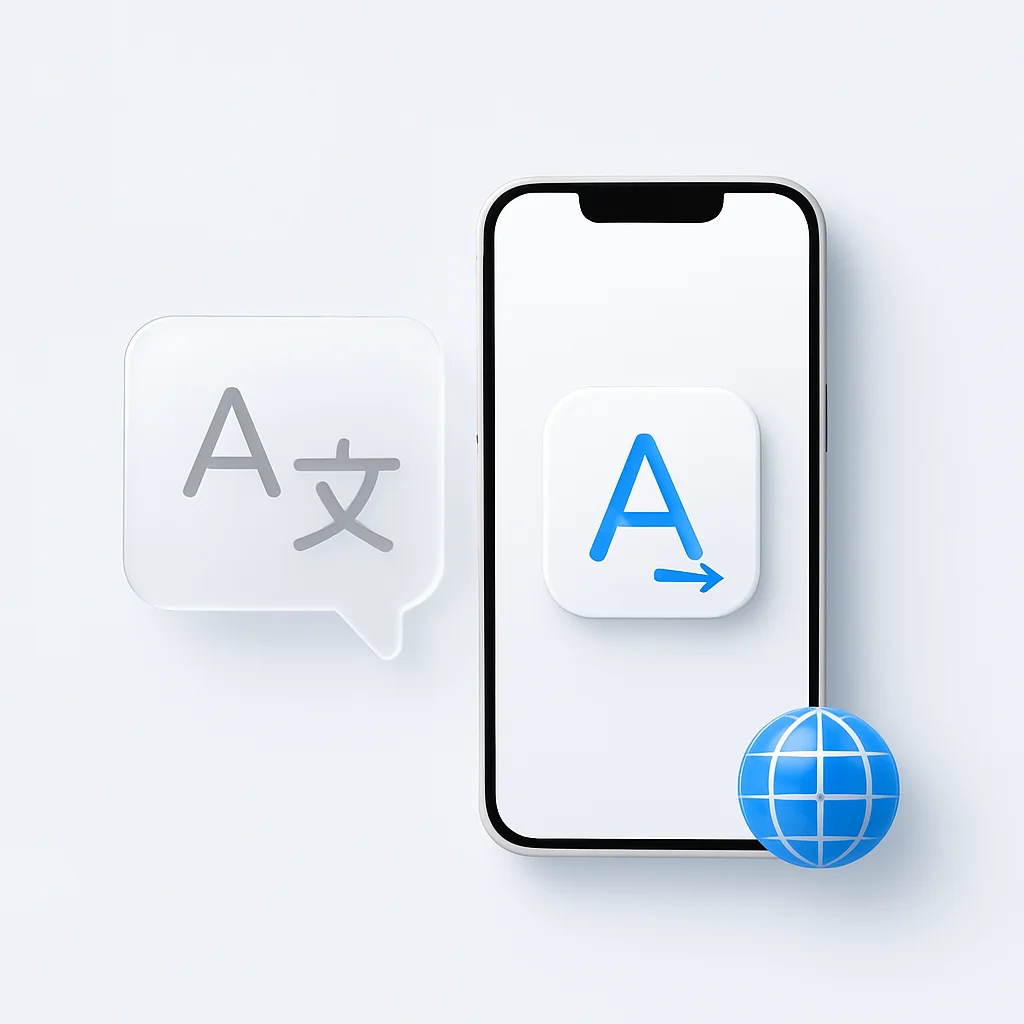Choosing an online store builder feels overwhelming. You’re a small business owner, not a web developer, yet you need a powerful e-commerce platform to compete. In 2026, the secret weapon that levels the playing field isn’t a bigger budget—it’s Artificial Intelligence.
The best online store platforms are no longer just digital shelves; they are AI-powered co-pilots for your business. These smart systems can write your product descriptions, personalize customer experiences, predict sales trends, and automate customer service, freeing you up to focus on what you do best: creating great products.
This article cuts through the noise. We’ll explore the top AI-powered e-commerce solutions for small businesses, helping you find the perfect platform to build, manage, and grow your online store.
Quick Picks: Top AI E-commerce Platforms for Small Business
🎯 Get Started Fast: The Top Contenders
Pressed for time? These six platforms offer the best AI features for immediate impact.
| Best For | Platform Name | Key AI Advantage for Small Business | Starting Price |
|---|---|---|---|
| Overall Performance & Apps | Shopify | Largest app store for adding any AI feature imaginable + "Shopify Magic" AI tools. | $29/mo |
| Ease of Use & Beginners | Wix | AI-powered site builder (ADI) creates a beautiful, functional store in minutes. | Free Plan |
| B2B & Complex Catalogs | BigCommerce | Powerful built-in features and robust API for AI-driven personalization. | $29/mo |
| Content & Brand-Focused Stores | Squarespace | Best-in-class design with emerging AI tools for content and product descriptions. | $23/mo |
| WordPress Integration | WooCommerce | Limitless AI customization via the extensive WordPress plugin ecosystem. | Free |
| Adding to Existing Sites | Ecwid | Automatically generates ad campaigns and adds a store to any existing site. | Free Plan |
🚀 The Small Business Advantage: How AI for E-commerce Creates Growth
Discover how AI e-commerce solutions give small businesses the edge they need to succeed.
Automated Operations
AI automates tedious tasks like writing product descriptions, managing inventory, and categorizing products, saving you hours of manual work each week.
Research from McKinsey shows that AI adoption in retail significantly boosts efficiency by automating core processes.
Smarter Personalization
AI engines analyze customer behavior to show them the right products at the right time, dramatically increasing the chance of a sale without any manual effort.
Boston Consulting Group reports that personalization can lift revenues by 5-15% and increase marketing spend efficiency by 10-30%.
24/7 Customer Service
AI chatbots can answer common customer questions about order status, shipping policies, and product details instantly, improving satisfaction and freeing up your time.
IBM data suggests that chatbots can successfully handle a high volume of routine customer service inquiries, leading to significant cost savings.
Predictive Analytics
Stop guessing which products will be popular. AI analyzes your sales data to forecast trends, helping you manage inventory and make smarter buying decisions.
Gartner highlights AI-augmented decision intelligence as a key trend, enabling more accurate forecasting for businesses of all sizes.
Comparing the Best Online Store Builders with AI Features

Shopify
Best OverallWhat it does: An all-in-one e-commerce platform that powers millions of businesses. It's known for its ease of use, scalability, and massive app ecosystem.
Small Business AI Benefit: "Shopify Magic" is a suite of built-in AI tools for writing product descriptions, blog posts, and email subject lines. The real power is the App Store, which gives you access to thousands of third-party AI tools for personalization, analytics, and more.
Best for: Most small businesses, from startups to those scaling quickly, who want a reliable platform with endless customization options through apps.
Starts at $29/moWix
Easiest to UseWhat it does: A website builder that offers powerful e-commerce functionality with a focus on visual design and simplicity.
Small Business AI Benefit: Wix ADI (Artificial Design Intelligence) can build your entire online store for you after you answer a few questions. It also has AI tools for creating logos, analyzing traffic, and generating text, making it perfect for absolute beginners.
Best for: Beginners, artists, and service-based businesses that need a beautiful, functional online store up and running in a single afternoon.
Free plan availableBigCommerce
Most PowerfulWhat it does: A robust e-commerce platform designed for serious sellers with large or complex product catalogs and a need for advanced, built-in features.
Small Business AI Benefit: While it has fewer native AI tools than Wix, BigCommerce's strength is its open architecture. This makes it easy to integrate sophisticated third-party AI for personalization, dynamic pricing, and advanced B2B features without sacrificing site speed.
Best for: Established small businesses with large inventories, B2B sellers, and those who want to sell across multiple channels like Amazon and eBay.
Starts at $29/moSquarespace
Best for CreativesWhat it does: A design-centric website builder known for its stunning templates that makes it easy for brands to create a visually impressive online presence.
Small Business AI Benefit: Squarespace is rapidly adding AI capabilities through "Squarespace Blueprint" and AI text generation tools. It helps you write compelling product stories and marketing copy that aligns with its award-winning design aesthetics.
Best for: Artists, designers, bloggers, and brands where visual presentation and content are just as important as the products themselves.
Starts at $23/moWooCommerce
Best for WordPressWhat it does: A free, open-source e-commerce plugin that transforms any WordPress site into a powerful online store.
Small Business AI Benefit: The power of WooCommerce lies in its limitless customization via plugins. You can add hundreds of affordable AI plugins for everything from AI-powered search and product recommendations to dynamic pricing and AI-driven marketing automation.
Best for: Small businesses that already have a WordPress website or want full control and ownership over their store's data and functionality.
Free (hosting costs apply)Ecwid
Best for Existing SitesWhat it does: An e-commerce widget that allows you to add a shopping cart to any existing website, blog, or social media page.
Small Business AI Benefit: Ecwid's AI tools are focused on efficiency. It can automatically generate Google and Facebook ad campaigns for you and offers some of the most user-friendly setup processes, making it a low-risk way to start selling online.
Best for: Bloggers or businesses with an existing website who want to add e-commerce functionality without a complete redesign.
Free plan availableAI as Your Store Manager: A Practical Framework

An AI-powered online store doesn’t replace you; it empowers you. The key is to delegate the right tasks to technology so you can focus on the human elements of your business.
Use AI for: Speed, Data, and Repetitive Tasks
First-Draft Content: Use your platform’s built-in AI or a tool like Jasper to write the first draft of 20 product descriptions in the time it would take you to write two. This overcomes the “blank page” problem and accelerates your store launch.
Data Analysis: Instead of manually sifting through sales reports, let AI show you which products are trending, which customers are at risk of churning, and what your best-sellers will be next month.
Qualitative Feedback Synthesis: When you get video testimonials or run customer interviews, use a tool like ScreenApp’s Transcript Summarizer to instantly pull out the key themes and pain points. You can discover more about leveraging AI tools for sales to understand your customers better.
24/7 Front-Line Support: Implement an AI chatbot to handle 80% of routine questions like “Where is my order?” This provides instant answers for customers and frees you from repetitive support tickets.
Use Your Human Touch for: Strategy, Curation, and Relationships
Brand Strategy and Voice: AI can write in any voice, but only you can define what your brand stands for. You set the strategy, define the tone, and tell the authentic story behind your products.
Product Curation: AI can suggest what to stock, but your human expertise and taste are what make your product selection unique and desirable.
Complex Customer Issues: When a customer has a unique or sensitive problem, a human conversation is irreplaceable for building loyalty and trust.
Final Polish: AI provides a fantastic 80-90% solution. Your job is the final 10-20%—editing the AI-generated copy to add your brand’s unique flair, checking for accuracy, and ensuring it truly connects with your audience. For a deeper dive, see our post on the best AI marketing tools.
Frequently Asked Questions (FAQ)
🤔 Your Questions on AI E-commerce Answered
What is the easiest AI-powered online store builder for a beginner?
For absolute beginners, Wix is the top choice. Its ADI (Artificial Design Intelligence) literally builds the first version of your store for you based on a few questions. This removes the technical barrier and lets you focus on your products from day one.
Can AI really help increase my online store's sales?
Yes, absolutely. The two biggest drivers are personalization and efficiency. AI-powered product recommendations can increase average order value by showing customers products they're more likely to buy. At the same time, AI-generated marketing copy and automated campaigns help you reach more customers with less effort.
Shopify vs Wix: Which has better AI features?
Wix has better *built-in* AI for beginners, especially for initial site creation. Shopify has better *overall* AI capabilities due to its massive App Store. With Shopify, if there's an AI feature you can imagine, there's probably an app for it. Both app ecosystems also enable no-inventory product lines via print-on-demand apps such as Podbase, Printful or Printify handy for testing new categories with minimal risk. The choice depends on whether you prefer an all-in-one solution (Wix) or a customizable platform (Shopify).
What is the difference between a platform with AI and just using AI plugins?
A platform with native AI (like Shopify Magic or Wix ADI) offers a seamless, integrated experience. The tools work perfectly out of the box. Using AI plugins (common with WooCommerce) offers more flexibility and can be more powerful, but it may require more setup and management to ensure different plugins work well together.
The Future is an AI-Augmented Store
For a small business in 2026, choosing an e-commerce or ai dropshipping platform is no longer just about taking payments. It’s about choosing an AI partner that can help you operate more intelligently. The trend is moving toward hyper-personalization, where every customer sees a slightly different version of your store tailored to their interests.
Tools that help you understand your customers on a deeper level will be critical. For example, using a tool like ScreenApp’s Video Ask AI to analyze customer video feedback can provide insights that simple star ratings never could. Similarly, turning your best product demos into marketing assets is simpler than ever with our guide to AI video generators.
The most successful small businesses will be those that embrace AI not as a replacement for human ingenuity, but as a powerful amplifier for it.
Conclusion
In the competitive landscape of online retail, Artificial Intelligence is the great equalizer for small businesses. An AI-powered online store platform acts as your 24/7 marketing assistant, data analyst, and customer service rep, allowing you to build a sophisticated operation on a small business budget.
For most users, Shopify offers the best balance of power and ease of use, with an unrivaled app ecosystem for adding any AI feature you need. For those prioritizing speed and simplicity, Wix is an excellent choice that can get you selling in hours.
The key is to start now. Choose a platform, leverage its native AI tools to handle repetitive work, and focus your energy on creating a brand and products that customers love. By working smarter, not just harder, you can build an e-commerce business that doesn’t just survive, but thrives.






